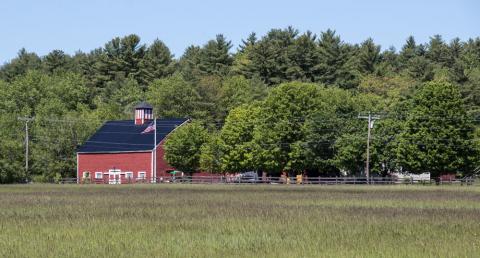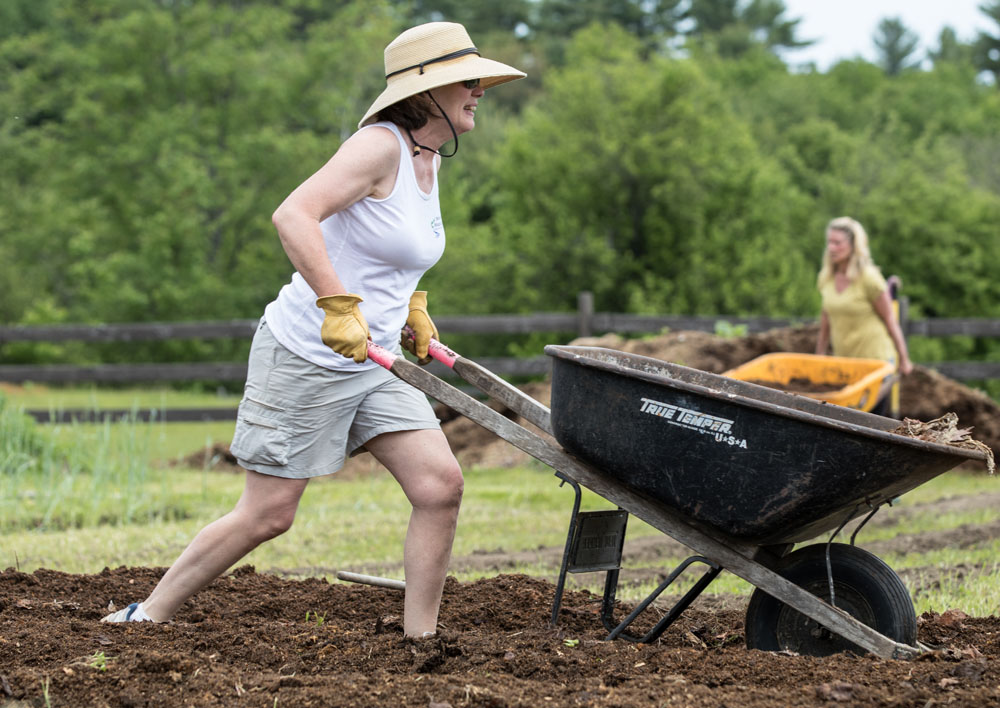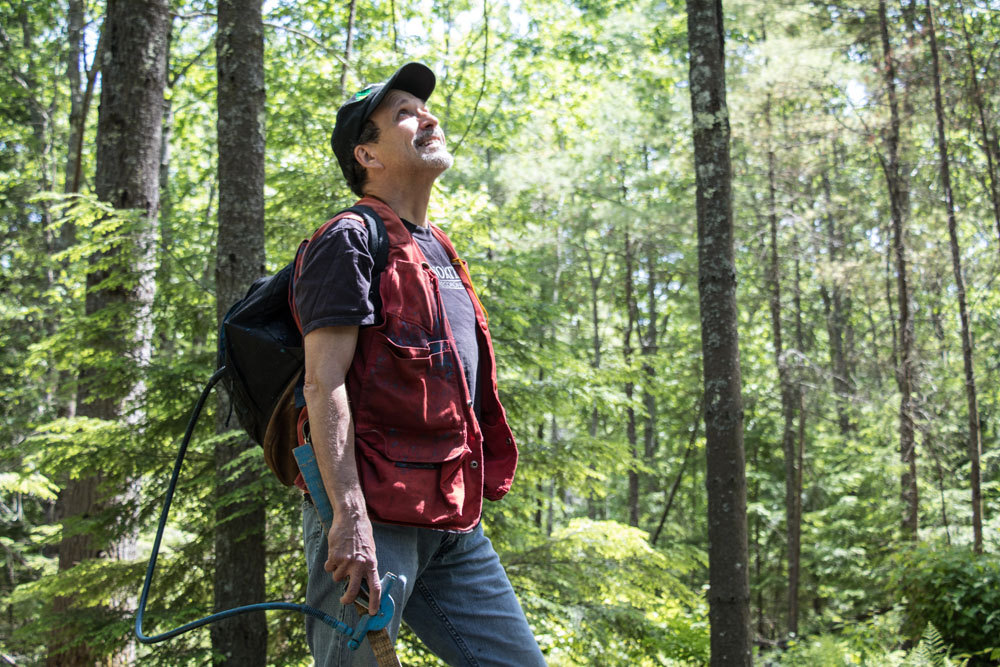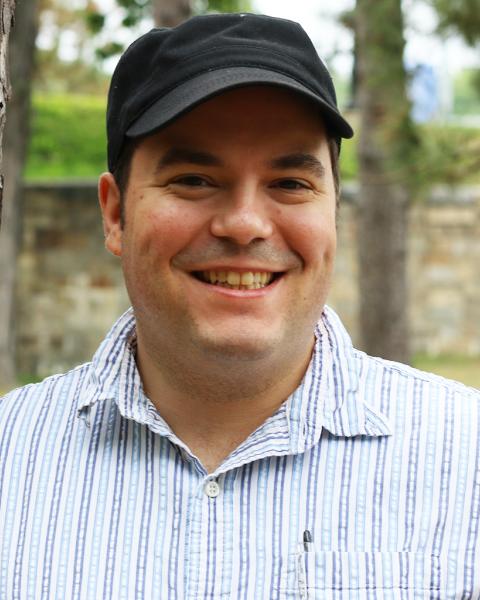Heirloom New Hampshire

For Cynthia Siemon Wyatt, Branch Hill Farm in Milton is a time machine. Looking out over the green pastures and wooded hills that border the farm, she thinks of her father, Carl Siemon, and the generations of family and friends who made the farm what it is now, acre by acre and tree by tree.
What started as a three-acre homestead has become a 3,000-acre working tree and agricultural farm, an educational center and a showcase for land conservation. According to Cynthia, it's inspiration from UNH Cooperative Extension that made her father’s vision for "an oasis of forests, fields, wildlife, recreation and clean water and air" real.
"This place, this farm, this legacy would not exist if it hadn’t been for the influence of Extension," she says.
That legacy recalls New Hampshire's past while setting a course for its future. A typical day at the farm might find workers harvesting hay and the farm's consulting foresters, Charlie Moreno and Dan Stepanauskas, mapping out sustainable forestry plans, all while neighbors and visitors walk the property's trails and learn about local conservation efforts.
"It's important for people to know that even lands in conservation are still contributing to an important part of New Hampshire's economy — the farming, forest, and the tourist economies," Cynthia says.
Branch Hill Farm's story began in 1937, when Charles Knowles Tripp purchased a farmhouse and three acres of land on top of a rolling hill. For his grandson, Carl Siemon, summers spent on the farm were transformative. He worked the land and frolicked in the woods, rivers and fields. He lugged drinking water from the well to the house and helped neighbors fill their barns with hay.
Even when he achieved great success over the years in the family business, Branch Hill remained in Carl's heart. When he retired in the 1960s, he traded suits and ties for overalls and muck boots and returned to New Hampshire.

"When he moved here, he had no knowledge of forestry. He learned through the educators at Cooperative Extension, and he fell in love with it," Cynthia recalls. "He loved working in his woods. He embraced the concept of a working forest, of producing products from our land, but he wanted to do it in a sustainable way."
Carl's partnership with Extension began in 1962. That year, he purchased an 18-acre lot behind the house. Recently clearcut, the land was in rough shape, and Carl turned to Extension forester Roger Leighton for advice. After walking the woods, Leighton suggested the property join the Tree Farm program. Carl agreed, and the farm was born.
When Leighton retired, Extension forester Don Black continued providing consultations and the two worked closely to realize a greater vision. Working in the forest nurtured Carl's deep love of learning and land stewardship. That's why on-site conservation and stewardship workshops are vital to Branch Hill's mission, Cynthia says.
"We want to get landowners out onto their property and become involved with managing their forests, because they usually form a connection like my father did. The hope is they'll have a good stewardship ethic," she says.
That vision for Branch Hill Farm stretched beyond Milton. Inspired by the Bear Paw Regional Greenway in southern New Hampshire, Carl pictured Branch Hill Farm's conservation lands joining with others to form greenways. Cynthia created Moose Mountains Regional Greenways (MMRG) in 2000. Cynthia is also involved with Explore the Moose, a regional organization that promotes eco- and agro-tourism in the area.
"We’re doing our best to promote this area. There's plenty of opportunity right here in Milton, with Branch Hill Farm's hiking trails connecting to the New Hampshire Farm Museum and McKenzie's Farm, forming a network of greenway trails," Cynthia says.

Branch Hill Farm Consulting Forester Charlie Moreno.
Branch Hill Farm has grown, too. As a privately operated conservation and education foundation, the farm hosts workshops and classes, often led by Moreno and Stepanauskas, as well as Extension educators. The annual Woods Water and Wildlife Festival brings almost 700 participants to Branch Hill Farm and raises money for MMRG.
"Branch Hill Farm is all about doing what's right for the earth and the forest. That's what matters most to them," says Moreno. That attitude connects with his own philosophy of long-term management.
"We're not looking at next year or five years from now, but 50 years, 100 years," he says. "That’s what's wonderful about working with Branch Hill Farm."
This story originally appeared in the 2017 edition of Radius.
